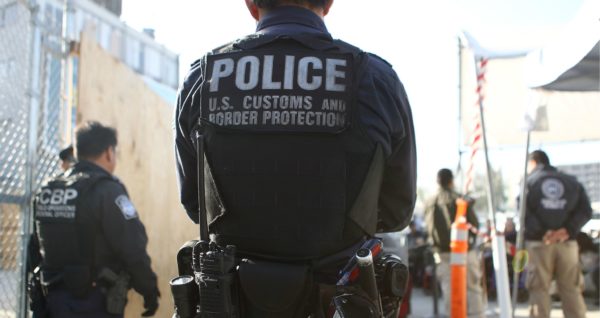Tasking Border Patrol agents with conducting credible fear interviews is a clear effort to fast-track the removal of vulnerable asylum seekers.
Lori Adams is the Director of the Immigration Intervention Project at Sanctuary for Families.
—
The recent U.S. Department of Homeland Security decision, reported by President of the National Border Patrol Council Brandon Judd, to task Border Patrol agents with conducting credible fear interviews is a clear effort to fast-track the removal of vulnerable asylum seekers, many of whom are gender violence survivors, from the U.S.
Sanctuary for Families serves individuals and families who have suffered gender-based harm to find safety and rebuild their lives. Our refugee clients, including women who have survived gender-based violence in their homes and in their communities, and members of the LGBTQ+ community who have suffered violence because of their sexual orientation or gender identity, have a right to seek asylum and to have a trained officer evaluate their claims.
These claims require an understanding of the country conditions that provide the context for that suffering, the failure of state protection for women and others in those countries, and an understanding of the evolving laws and policies impacting gender-based asylum cases. Credible fear interviews are the first step in the U.S. asylum process. They are a matter of life and death. And they should only be conducted by asylum officers who have received the training and have the time to recognize a refugee when they see one.
Section 235 of the Immigration and Nationality Act requires this. The “professional training in country conditions, asylum law, and interview techniques” that asylum officers receive is not provided to Border Patrol officers whose role is to monitor the border for weapons, drugs, and other threats to U.S. security. DHS should not divert the attention of Border Patrol agents away from their intended duties, and should not ask them to take on responsibilities that they were not hired or trained to do. That will almost certainly lead to failure to properly identify refugees at the border, and will increase the burden on the U.S. immigration courts to reconsider improperly denied applicants.
Instead, the U.S. should fund the creation of additional positions within the Asylum Division and ensure that the new asylum officers receive the requisite training in country conditions, asylum law, and interviewing techniques to properly evaluate the asylum claims of vulnerable refugees who fled to this country to seek protection.
The U.S. is a nation of immigrants and was founded as a safe haven for those who escaped persecution in their countries of origin. Not only are we bound by international law and our own domestic asylum laws to protect refugees who cross our borders, but providing that safety and protection is also inextricably bound to the ideals upon which this nation was founded.
The pilot program is reportedly scheduled to begin two weeks from now. Sanctuary for Families urges DHS to cancel this pilot program and leave the responsibility of conducting sensitive credible fear interviews with the asylum officers who are trained to conduct them.
—
To speak with Lori Adams, Director of the Immigration Intervention Project at Sanctuary for Families, contact LAK Public Relations.
